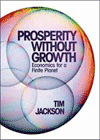Scenarios of UK Consumption and Carbon Emissions to 2030
Overall aims
Exploring the change in carbon emissions associated with UK household consumption over the next 20 years, under a range of social, technological, economic and political conditions.
Context
With long term emissions reduction targets now enshrined in UK legislation, and the Committee on Climate Change providing expert advice to Government on short and medium term pathways, the opportunities and challenges for a low carbon transition in the UK are becoming increasingly clear. Nevertheless, the government necessarily adopts a production accounting approach to emissions, in line with the Kyoto Protocol. Viewed in this way, UK emissions are already on a downward trajectory, due in part to the ‘dash for gas’ and to continued offshoring of energy-intensive industry. When viewed from a consumption perspective, however, UK emissions are rising as the goods and services consumed here are increasingly produced in less energy-efficient economies around the world, requiring transportation to bring these goods to the UK market. These scenarios explore possible changes in emissions from this consumption perspective.
Research methods
The four scenarios each involve a narrative over the 20 year period, with key global, regional and national developments described, and changes in household consumption outlined. Illustrative expenditure and emissions figures accompany each narrative. A summary of the key developments in each scenario are provided here.
Results
Scenario A: Little significant change in efforts to tackle emissions up to 2020, when increasing calls for climate action combine with rising fuel and commodity prices to bring things to a crisis point. Out of the crisis, international leaders build consensus on a comprehensive programme of emissions cuts. Although there is little improvement in the carbon intensity of UK lifestyles before the crisis, the securing of a global deal instils a sense of common purpose that encourages proactive behavioural change.
Scenario B: Voluntary climate action by different countries, including through green job programmes to aid economic recovery, helps to lay the groundwork for a comprehensive and equitable global deal in 2015. The cooperative approach observed at the international level is reflected in the behavioural change undertaken at the household level.
Scenario C: Unilateral climate action by the EU is intended to draw further commitments from other parties, but with no such action forthcoming by 2015, the EU threatens the use of trade measures. After a period of heightened political tensions and economic slowdown, a compromise is reached. The result is a series of bilateral emissions targets that remain insufficient to avoid dangerous climate change. The UK public are cautiously optimistic at first, but without commensurate international action, enthusiasm for pro-environmental behavioural change is weakened.
Scenario D: With little effort on emissions reduction, the global economy is exposed to increasing fuel prices towards 2020. With intensified social pressure to reduce fuel prices, and unable to work cooperatively on establishing an equitable emissions regime, countries instead pursue divergent, often conflicting energy security policies. The persistence of fossil fuel extraction as part of those policies extinguishes any hope of a low carbon transition, and leads to international conflict.
Implications
The scenarios developed in this work are intended to provide a platform for discussion and debate around the key themes developed in the narratives. Although not intended as predictions, the illustrative figures provided for each scenario give a more concrete sense of how each narrative might develop, allowing focussed discussion on the assumptions made in each case concerning emissions, behaviour and economic factors. The narratives can then be used as part of a process of stakeholder engagement around challenges and opportunities emerging from the work, to develop policy insights for government, as well as strategic objectives for non-governmental actors.
Outputs
Milne, S 2012. History lessons for scenario practitioners: notes on the epistemology of historical explanation, general laws and agency. Technological Forecasting and Social Change, special issue on Scenario Method.
Milne, S 2012. Economic approaches to behaviour change for sustainability. In S Fudge et al. (Eds) International Approaches to Sustainable Behaviour Change. Cheltenham: Edward Elgar, Cheltenham, UK.
Milne, S 2012. Carbon intensity of UK household consumption: Scenarios to 2030. In T Jackson and I Christie (Eds) Lifestyles, Values and the Environment. London: Earthscan/Routledge (forthcoming).
Chitnis, M, A Druckman, L Hunt, T Jackson and S Milne 2012. Forecasting UK household expenditure and associated GHG emissions: outlook to 2030. RESOLVE Working Paper Series 02-12. Guildford: University of Surrey.
Milne, S 2012. Carbon intensity of UK household consumption: Scenarios to 2030. Doctoral Thesis, awarded July 2011, University of Surrey, Guildford, UK.
Milne S 2011. Consuming Carbon: RESOLVE Scenarios for UK Household Consumption to 2030, November 2011, University of Surrey, Guildford, UK.
Milne, S 2011. Consuming carbon supplementary data: RESOLVE Scenarios to 2030 for UK household consumptionRESOLVE Working Paper Series 15-11. Guildford: University of Surrey.
Milne, S 2011. Carbon intensity of UK Household Consumption: scenarios to 2030, RESOLVE Conference on Living Sustainably: values, policies, practices, 15th June 2011, London, UK.
Milne, S. 2009. Scenarios and personas: towards a methodology for portraying the carbon-intensity of UK lifestyles to 2030, RESOLVE Working Paper Series 06-09. University of Surrey.
Chitnis, M, A Druckman, L C Hunt, S Milne and T Jackson 2009. Analysing the role of lifestyles in determining UK household energy demand and GHG emissions: predictions and scenarios. Enerday Conference on Energy Economics and Technology: Long-term Energy Trends – Where will be in 2050? 3 April 2009, Dresden, Germany.





